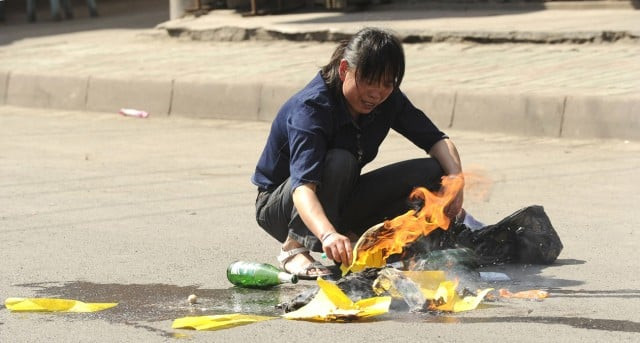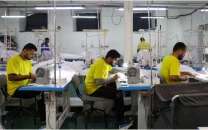Security tight on anniversary of China unrest
Security forces fanned out across China’s Urumqi city on the occasion of the 1st anniversary of deadly unrest.

Urumqi, the regional capital, erupted in violence on July 5 last year, as the mainly Muslim Uighur minority vented decades of resentment over Chinese rule of Xinjiang by attacking members of China’s dominant Han ethnic group.
In the following days, mobs of angry Han took to the streets looking for revenge in the worst ethnic violence that China had seen in decades. The unrest left nearly 200 dead and 1,700 injured, according to government figures.
Restaurants and shops in the city remained open and busy at the weekend, but the urban bustle belies strong fears on both sides of the ethnic divide of further violence.
Armed and riot police patrolled the city centre – on foot, in vans or on motorcycles — and the number of security forces has gradually increased in the run-up to Monday.
Authorities staged massive anti-riot exercises in recent days and 40,000 security cameras have been installed throughout the city of nearly two million people, according to state media. The city’s mainly Uighur quarter was under particularly high surveillance. Security vehicles lined one of the main squares on the edge of the district, popular with locals for its food stalls.
Uighurs say the July 2009 violence was sparked when police cracked down on peaceful demonstrations staged over a factory brawl the month before in southern China in which two Uighur migrant workers were reportedly killed.
China blamed “separatists” for orchestrating the unrest.
Authorities blocked Internet access, text messages and international phone calls in and out of Xinjiang after the riots – restrictions that have been gradually lifted, though some Uighur-language websites remain inaccessible.
Uighurs, a Turkic-speaking people, allege decades of Chinese oppression and unwanted Han immigration, and while standards of living have improved, Uighurs complain most of the gains go to the Han Chinese.
Tensions in the city again boiled over in September after a spate of syringe attacks – which many victims blamed on Uighurs – led to days of protests that left several people dead.
One restaurant owner, who identified himself only as Abdullah, told AFP that police had collected all of the large knives from his establishment and advised him not to go out on Monday.
Published in The Express Tribune, July 6th, 2010.



















COMMENTS
Comments are moderated and generally will be posted if they are on-topic and not abusive.
For more information, please see our Comments FAQ